Cut off the flowers as soon as they begin to fade so that the plant doesn’t waste too much energy on developing the seeds. Fertilize the peony bush to help it get stronger after the blooming cycle and spray the plant with fungicides if needed.
What To Do with Your Peony Bushes After They Bloom

How you will take care of your peony bushes right after they bloom will determine how the plants are going to perform next year.
Should I Deadhead My Peony?
Yes, as soon as the bloom begins to fade, you should deadhead it.
This will not only keep the bush looking neat, but will also help the plant preserve its ‘power’ for the next season.
If you leave the dying blooms on the bush, the plant will continue to waste its resources on trying to keep the flowers alive.
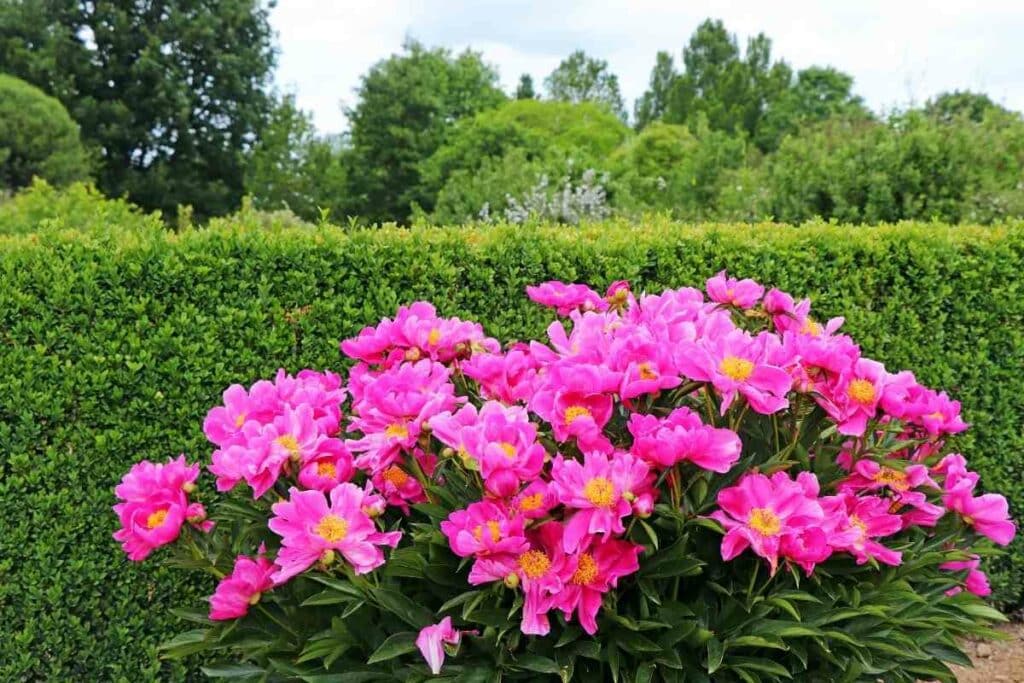
In fact, right after flowering, the seeds will begin to form and this is exactly what requires a lot of energy.
Once you remove the old blooms, the plant is going to redirect the precious nutrients to other parts of the bush.
Some resources are going to be spent on making the foliage thicker, while the rest will be stored in the plant for next year.
Where Do You Cut Peony Flowers?
You should cut the stem back to the very first set of leaves (1 or 2 inches below the flower).
Only clean and sharp instruments (a pair of scissors or special pruning shears) are suitable for the job.
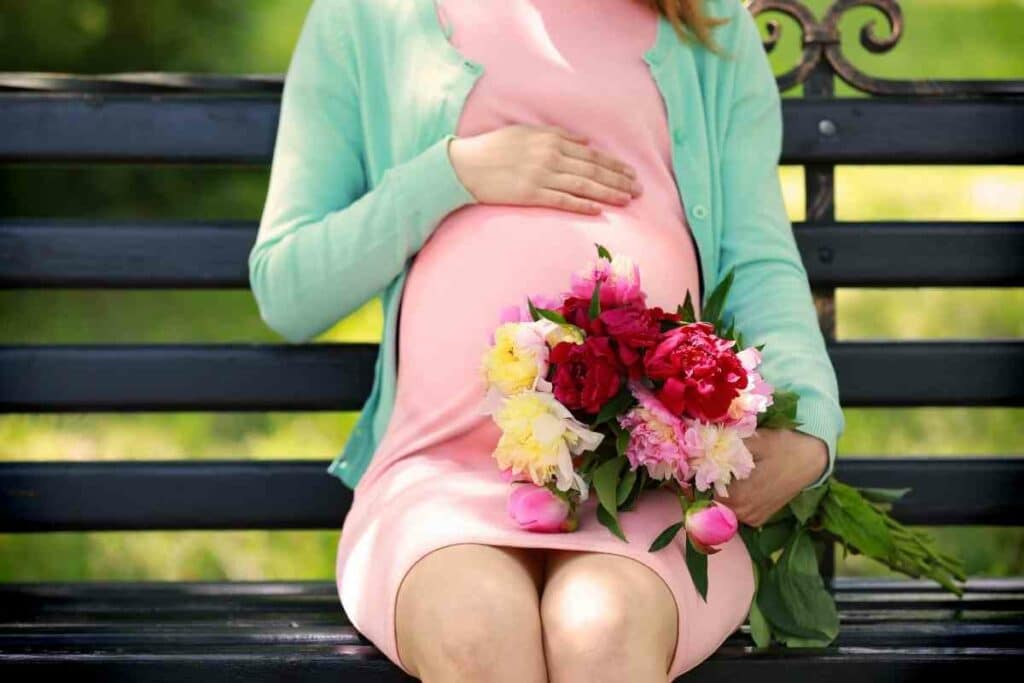
Trying to cut the stem with dull shears will cause unnecessary damage to the bush.
If you manage to make a clean, small cut, it won’t take the plant too long to heal and it wouldn’t have to spend too many resources on the process.
It is extremely important to leave as much foliage on the bush as you can.
In Fall: When the leaves will start getting yellow, you would have to prune the whole bush at ground level.
Should I Fertilize Peony Bushes After They Bloom?
Yes, you should fertilize the bushes after they bloom.
It might come as a surprise, but a lot of plants require additional nutrients not only before the blooming cycle but also right after it finishes.
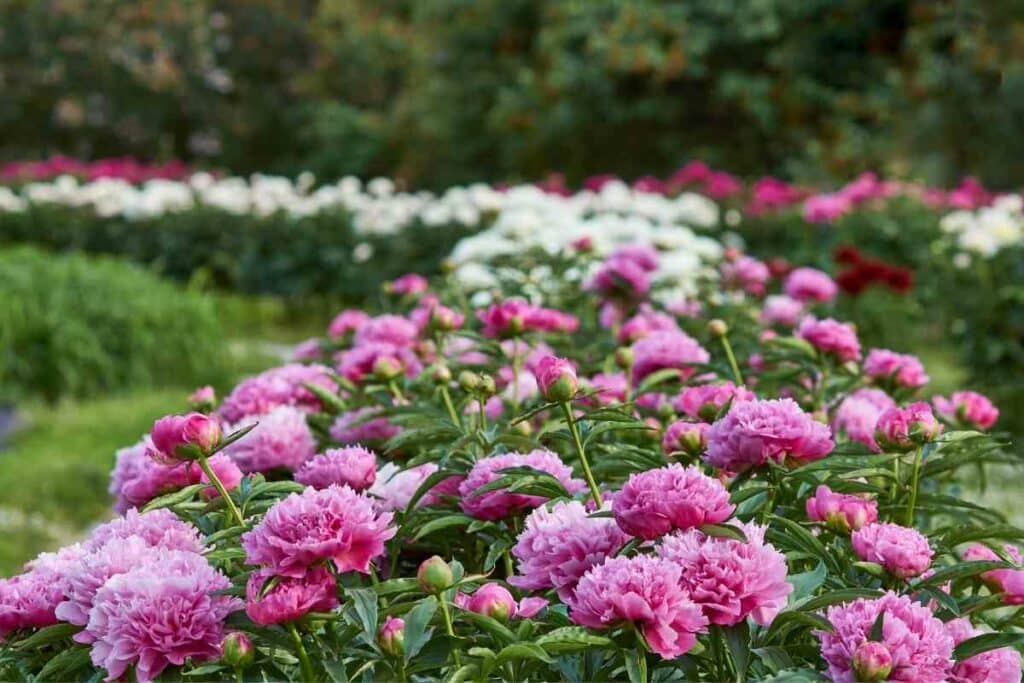
This is important because:
- The fertilizer helps the plant recover much faster after the cycle
- The fertilizer will give the bush some additional nutrients that it’ll be able to save for next year’s blooming season
When it comes to the actual fertilizer, opt for a combination of bone meal and compost.
The latter has all the necessary nutrients, and the bone meal will help to re-energize the bush’s roots.
If you prefer granular fertilizers, then go for one that doesn’t have too much nitrogen.
Even though the plant is still going to need nitrogen, the fertilizer should have higher amounts of phosphorus and potassium.
Should I Spray the Peonies with Fungicides?
Ideally, you would want to spray the plant with fungicides at the beginning of the season. But you can use the remedy right after the blooming cycle as well, as this will help protect the wound sites which are especially susceptible to pathogen invasion.
Once the plant spends all its energy on flowering, it becomes weak.
And that is exactly when the bush might get affected by powdery mildew, for example.
Botrytis blight is another common fungal disease.
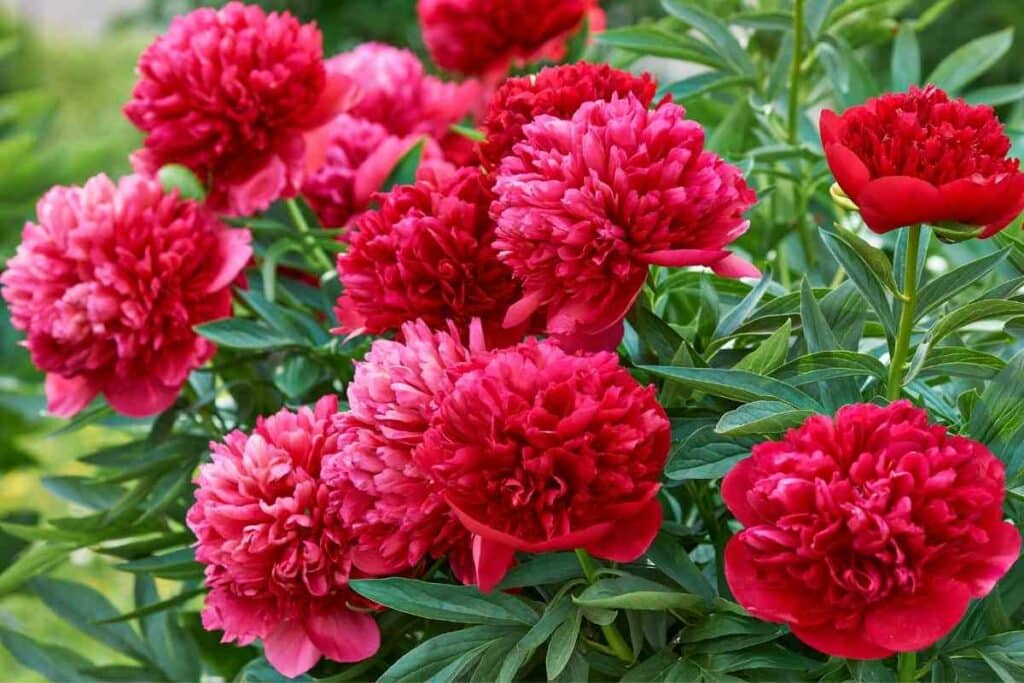
The worst thing about this one is that the fungus can attack the bush when it is weak (right after the blooming cycle) and survive the cold winter temperatures on the plant.
This will, of course, affect the blooming in the next season.
The best way to fight Botrytis blight is to take the bush down to ground level at the end of the season (late September – early October).
What to Avoid: Do not use the removed parts to make compost or mulch – the fungus can survive in the plant debris and then attack the new bushes in the spring.
How Should I Water My Peonies After They Bloom?
The soil around the plant should always be kept slightly moist. In general, the bush needs to be watered every 5-7 days, but the exact schedule depends on the type of soil.
You wouldn’t have to water clay soil as often (once every 7-10 days would do).

However, sandy soil that drains quickly, would require more frequent watering – up to 2 times per week.
When watering, try to make sure that the water doesn’t fall on the leaves – this will help prevent the development of various diseases.
What Not to Do with Your Peony Bushes After They Bloom?
You shouldn’t relocate the bush right after the blooming cycle and you shouldn’t cut the whole plant down too early.
If you are planning on digging up the plant and moving it, then you should wait until fall.
Planting peonies in the springtime is not recommended as the bushes will struggle during the hot summer.
Quick Fact – The bushes that have been planted in spring usually take an extra year to develop the blooms.
Also, do not cut the bush back to the ground right after the flowers bloom.
You should do that when the leaves begin to turn yellow. But cutting the plant in spring or summer will do much more harm than good.

If the bush doesn’t have its leaves, it won’t be able to produce any energy using photosynthesis.
The plant needs the energy to grow its roots and to accumulate enough ‘power’ to grow the flowers next year.
For this same reason, you should remove only the flower after it blooms. Not the foliage.
Do Peonies Flower More Than Once?
Peonies do not bloom all summer long. But your bush might have flowers on it for over a month because all buds don’t open at the same time.
If you manage to take proper care of the plant, the flowers are going to come back every year.
By the way, happy and healthy plants can end up blooming for over a hundred years.
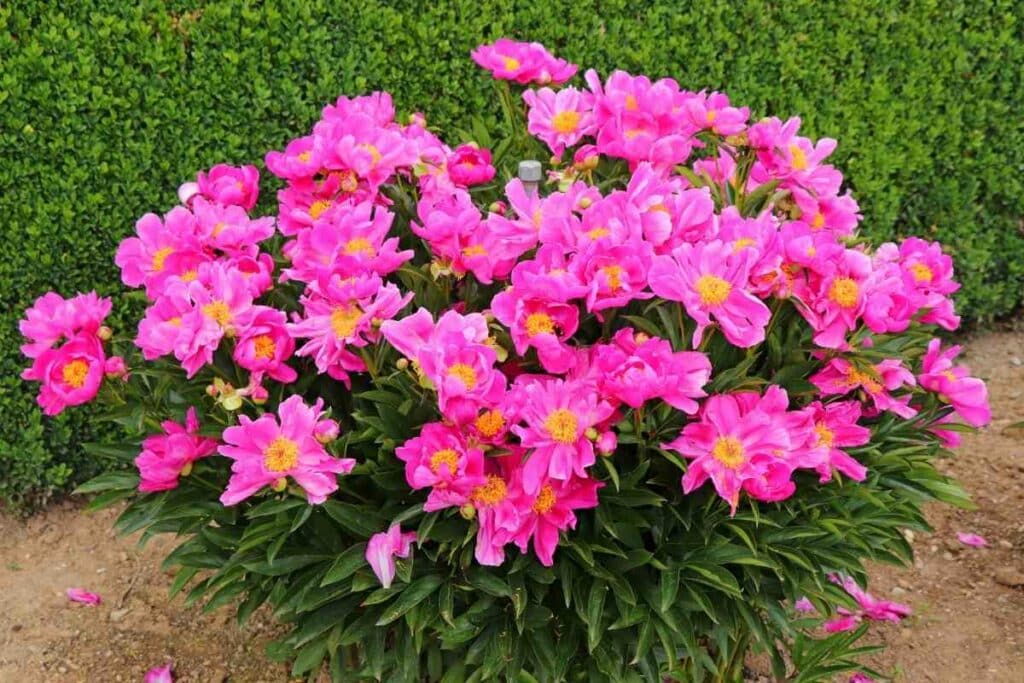
Usually, peonies bloom for around 4-6 weeks in late spring. The flowers can last for 10-12 days.
However, you should try not to leave the flowers on the bush for more than 7 days. Cut the peonies before they start forming the seeds.
Final Thoughts
What to do with your peony bushes after they bloom?
The primary thing that you should do is deadhead the flowers as soon as they begin to fade.
However, there are a few other tips that you should bear in mind, if you want your peony bushes to be healthy:
- Make sure that your plants receive enough nutrients before, during, and after the blooming cycle. The bush is at its weakest, once it spends all its energy on flowering, and that’s when it becomes especially vulnerable to diseases.
- Leave the flowers on the bush only for around 7 days and then cut them off. Do not touch the foliage at this point.
- Prune the bush at ground level in fall, once the leaves start turning yellow. Get rid of the removed parts to ensure that such diseases as Botrytis blight don’t have a chance to come back next year.
